The Lunch Hour – Professor Enase Okonedo, Dean, Lagos Business School


My first job was a 3-month internship at an accounting firm while I was still a student. I learnt the importance of attention to detail in accounting, as this helped me to avoid mistakes and ensure the balancing of accounts. In addition, the audit aspect of accounting requires a probing mind to identify what lies behind the numbers. I ensured I acquired these two qualities, which have served me well at work over the years.”
Prof Enase Okonedo is the dean of Lagos Business School (LBS), Nigeria where she has responsibility for setting strategic direction for the school, as well as overseeing all academic and administrative matters. She is a Fellow of the Institute of Chartered Accountants of Nigeria (FCA) and a Fellow of the International Academy of Management (IAM). She has an MBA from IESE Business School, Barcelona and a Doctorate in Business Administration from International School of Management (ISM), Paris. Before becoming dean, Prof Okonedo taught courses in problem-solving and decision-making, corporate financial management and financial strategy. She also held several leadership positions at LBS at various times. Prof Okonedo is the Chair of the LBS Management Board, a member of the Senate and Governing Council of Pan-Atlantic University, and also serves on the academic advisory board of the Global Business School Network (GBSN), a non-profit organisation based in Washington DC. Between 2012 and 2013, she was the chairperson of the Association of African Business Schools (AABS) and remains a member of the Board. She was recently elected to the board of AACSB International, a leading global institution for advancing quality management education. An accomplished professional with more than 28 years’ experience in the financial services and management education sectors; she serves on the boards of several companies.
Please talk about your education and what motivated you to select your discipline.
I was raised in Benin City and attended primary and secondary school there. As a secondary school student, I wanted to study a science course at the university, but I flunked Biology so that dream didn’t go far. However, my interest in the sciences remained strong, so I settled for Industrial Mathematics. While studying this discipline in the university, I did some economics and finance courses and found them interesting. I, therefore, decided to switch my major to accounting after one year.
Talk about your first job and the main thing you learnt as a young employee.
My first job was a 3-month internship at an accounting firm while I was still a student. I learnt the importance of attention to detail in accounting as this helped me to avoid mistakes and ensure the balancing of accounts.
In addition, the audit aspect of accounting requires a probing mind to identify what lies behind the numbers. I ensured I acquired these two qualities which have served me well at work over the years.
Talk briefly about your career progression.
Accounting wasn’t the most lucrative career in those days as banks and other financial services firms paid a lot more. I then decided to pursue a career in banking. I started out in a finance firm called CashLink Investments before moving on to the former IMB Securities (owned by the defunct International Merchant Bank).
However, following the liberalisation of the banking sector in the early 1990s, I soon found that banks focused a lot on gathering deposits. This seemed like a major emphasis in the typical banking business model at the time, but it was a task I didn’t find very stimulating or fulfilling. So I wanted out.
While considering alternatives to a career in banking, I stumbled on an advertisement for a vacancy at the relatively new Lagos Business School (LBS). It was a junior role but I applied anyway as I had become restless and dare I say bored with banking. I was told that I was overqualified for the position (I was an assistant manager at the bank at this time) and it was a 1-year contract they were offering. Still, I persuaded the person in charge to allow me to be interviewed after which I was hired.
I worked for a year as a research assistant to Dr Christopher Kolade who at the time was a part-time faculty member at LBS before becoming a member of the Finance faculty. At the time, LBS facilitators were drawn mainly from practice/industry.
Over the course of the years, I obtained additional qualifications, including an MBA from LBS and held various administrative positions before being appointed as Dean of the School in 2009.
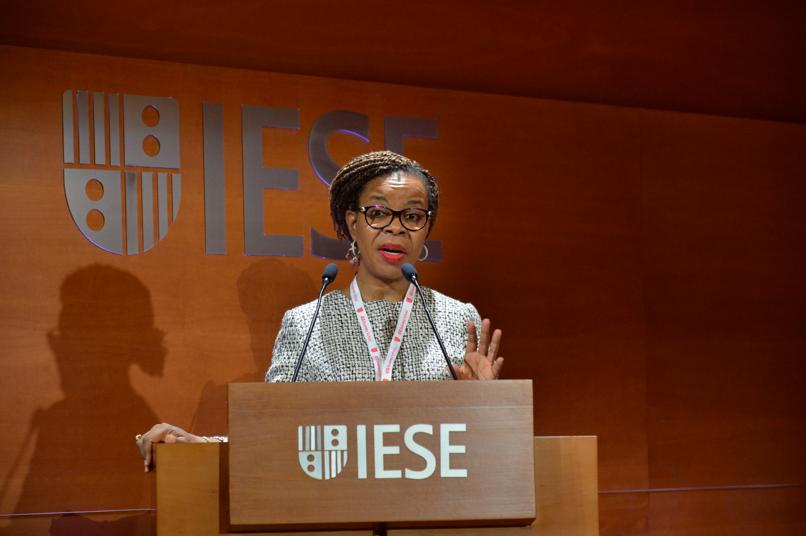

Biggest lesson you learnt in University?
I learnt that hard work is a requirement for success; passion and interest are not enough. I flunked so many courses in my first year as a very young student (I was sixteen at the time) and that was a wake-up call for me.
Two or three things you have learnt in your career that are not taught in the classroom?
I have learnt that it is valuable to have a role model/mentor in the workplace. For me, that was Dr Christopher Kolade. He reinforced the idea of working methodically and purposefully. He also demonstrated high ethical values and observing his many achievements encouraged me.
Another lesson that I learnt is to objective and not sentimental in decision-making. In other words, have a heart but don’t go too far with your heart in decision-making.
What’s the biggest lesson you took away from home (parents/guardian)?
I will have to say my values as a human being. My parents taught me always to consider others, be generous and work hard.
Who was the greater influence? Mom or dad?
I think they influenced me equally as they shared the same values and transmitted those values to my siblings and I. However, it’s important to note that my mother was a role model in the way she was able to work independently. Mentally, I have never considered my gender as a disadvantage. I never saw or believed there was a glass ceiling or a height I couldn’t attain due to my being female. Neither did I realise there were differences in aspirations as my mother worked outside the home and had a career. I, therefore, didn’t think otherwise in terms of what I could attain.
What type of music do you like?
Rhythm and blues.
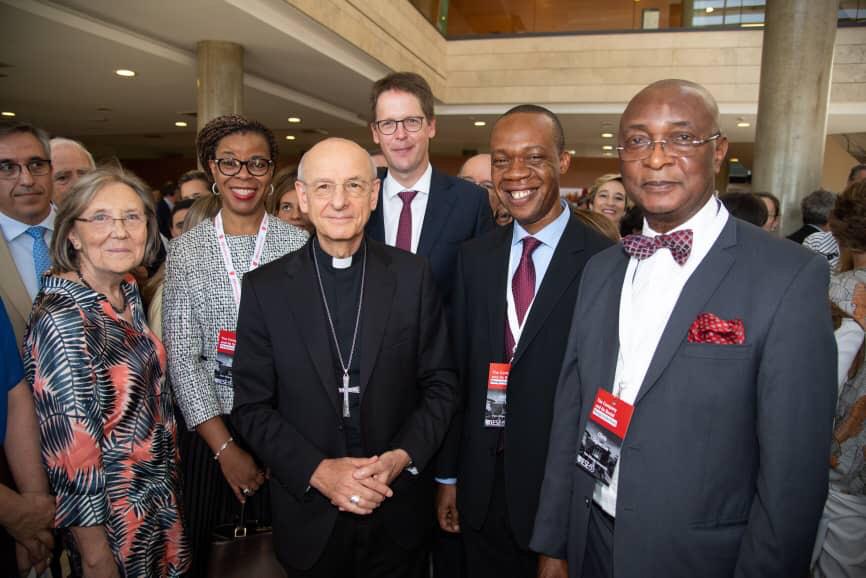

Who are your favourite authors?
I am a bit of a voracious reader. I read everything. When I was younger, I enjoyed John Grisham’s books, but now I read everything apart from fiction.
So what are you reading now?
A book titled The Joy of the Gospel by Pope Francis
Who’s your best boss ever and why?
It would be inaccurate if I mentioned just one person. First, I consider Dr Christopher Kolade as a great mentor. I learnt so many things from him as I explained earlier.
My best boss will be my current boss, Professor Juan Elegido, who is the Vice-Chancellor of Pan-Atlantic University and who has been my boss for many years. He entrusts me with responsibility and allows me room to thrive while at the same time, being incredibly supportive. It is great to work with someone who believes in you.
The economic impact of COVID-19 has highlighted the importance of philanthropy in Nigeria? What’s your view on helping the less fortunate?
As I mentioned earlier, my parents brought me up with the mentality that we exist to help others. So I see the COVID-19 crisis as another call to help the less fortunate, and I think that corporate leaders should rise up and be counted in these challenging times.
What should be the biggest lesson for all from the COVID-19 outbreak?
The ability to block out the noise and focus on what is most important. This should be the case at all levels. Governments need to identify and focus on what is most important; corporate leaders need to determine what is most important and prioritise this while they pursue other goals. As an individual, the current situation should cause us to reflect on what is in life and pay attention to this.
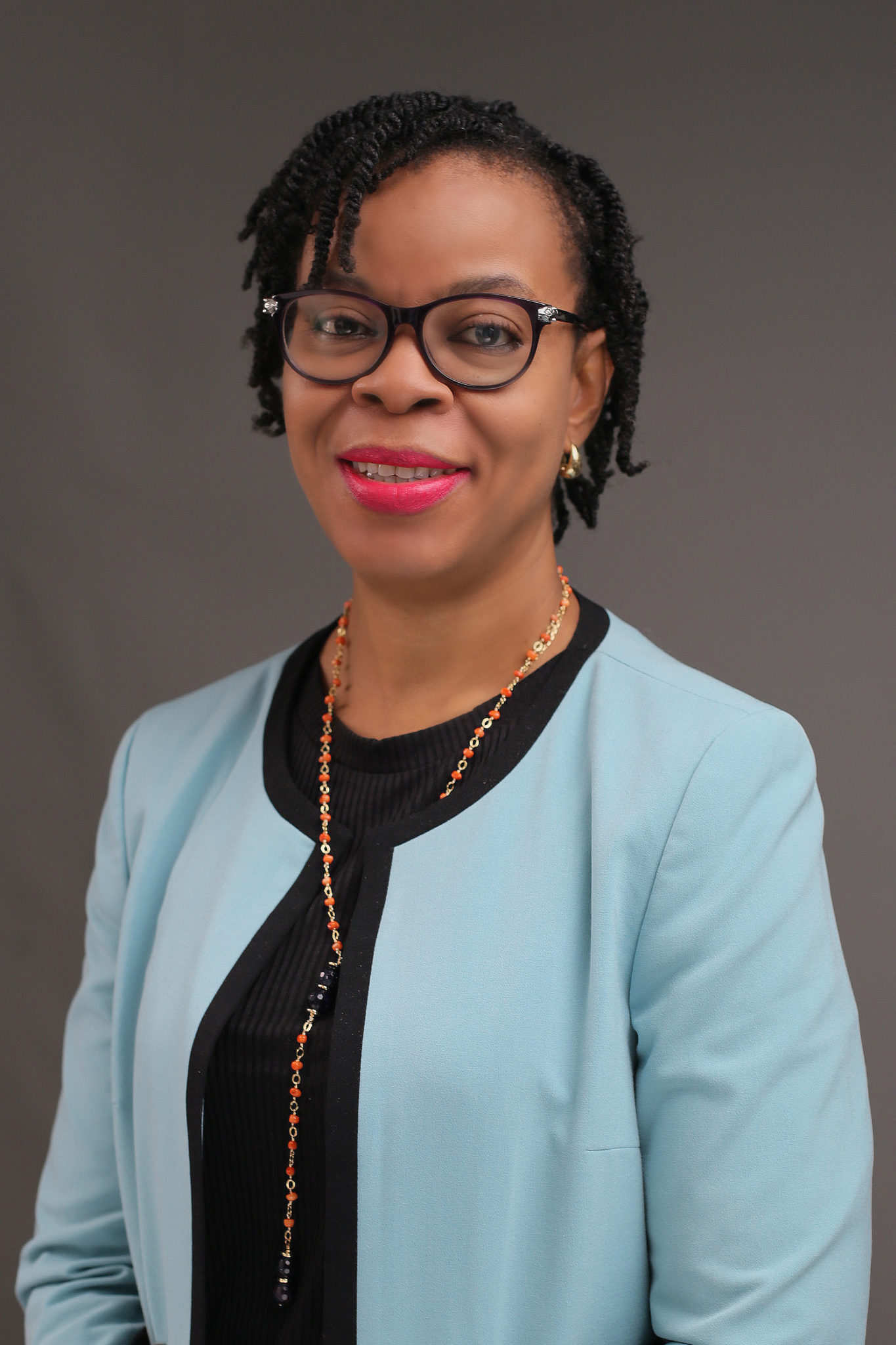

On the role of business in society – what should be the focus of businesses apart from making money?
Companies should always be about having a positive impact on society. We should never lose that focus. If it was all about making money, then drug traffickers should be celebrated because they make more money than many companies, albeit at the expense of society. Every CEO and corporate leader should think about what their business is doing to improve society and see business as a way to advance society. In doing so, I think it’s essential for CEOs to also think about how their company’s actions may be detrimental to societal progress and therefore make every effort to fix that.
Do you think COVID-19 will significantly change attitudes to working from home?
Absolutely. However, the big challenge around that is to help cultivate the discipline around it. But the costs on savings, positive impact on the environment and what it does for achieving work-life balance make it a viable way forward for many companies.
Two things you value the most in a candidate when hiring?
The first is “bandwidth”; you’ve got to be smart because it is hard to fix this if it is lacking. That way, with a certain level of aptitude you can be reasonably sure the employee will understand your expectations and figure out a way to get the job done with minimal supervision.
Also Read: The Lunch Hour – Esigie Aguele, CEO and Co-Founder, VerifyMe Nigeria
The second thing I look for is initiative. Is the person self-motivated? The ability to work independently in the 21st century is a critical trait.;
What’s your favourite place to go in Nigeria and abroad?
In Nigeria, it will be Benin City because it is home; that’s where I grew up. Abroad, I like Barcelona for the lifestyle, culture and magnificent architecture.
Your favourite Nigerian Brand?
I like what Dangote has done across Africa. It’s a brand that represents the entrepreneurial spirit that you find in Nigeria. I also like that it is a brand that employs a lot of people across the continent and has contributed significantly to economic development in the countries it operates in.
Any interest in sports?
Does walking count?
Best use of money ever for you.
Giving for a purpose. Helping someone achieve their dream.
Who will you like to spend a holiday with?
All my sisters; we have so much fun when we are together.
Tea or coffee?
Tea – I drink a variety depending on the time of the day and my needs. From English breakfast tea in the mornings to green tea after lunch, rooibos or fruit infusions throughout the day; lavender or lemongrass at night; anything tea works.
If you found Buhari sitting next to you at a restaurant what would be your biggest policy ask?
Stop defending the currency (naira).
What will be your top policy ask for your sector (education)?
Articulate a national education policy that links the various levels of education – primary, secondary and post-secondary – to the future needs of the nation and the leaders we want for the future.
Where do you see Nigeria in 10 years?
If I had my wish, we would be on the cusp of a sustainable recovery with better established institutional and governance structures as well as a conducive environment for business to thrive.
Do you think Nigeria should be modelled after India or China?
I think China because of the development model that has taken millions out of poverty. The bigger challenge is to situate such a plan within a democratic political structure.
Thanks a lot for your time.
The Lunch Hour was over the phone because of the restrictions in public gathering due to the COVID-19 outbreak in Nigeria.



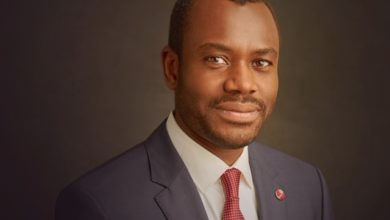
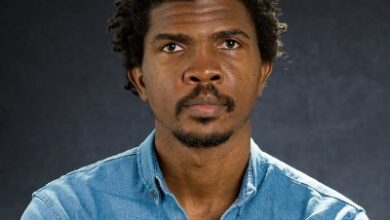



I like to receive your articles